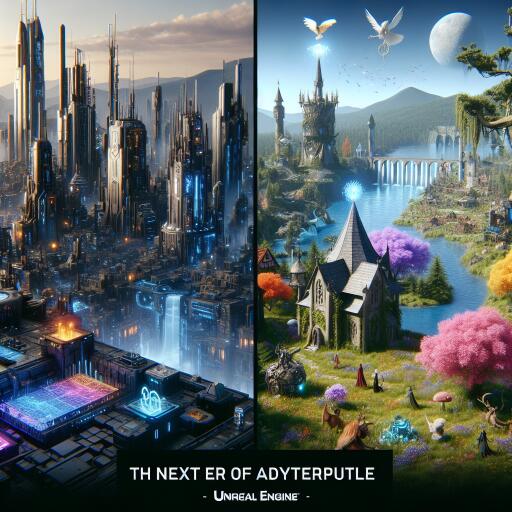Exploring the Future of Game Development: CD Projekt Red’s Shift to Unreal Engine 5
In an industry where innovation and technology redefine boundaries, CD Projekt Red (CDPR) has consistently pushed the envelope, crafting experiences that immerse and engage in ways previously unimagined. Known for their narrative depth and attention to detail, CDPR’s venture into the dystopian future with Cyberpunk 2077 marked a significant pivot, not just in narrative but in technological shifts as well.
The release of Cyberpunk 2077 and its first-person perspective was more than just a design choice—it was a statement. In a world teetering on the edge of human and technological melding, the game dared players to question the very essence of identity and humanity through a lens intimately close to their digital avatars.
Developing this futuristic odyssey was no small feat. To achieve the desired realism and immersion, CDPR embarked on an extensive process of capturing real-world interactions through GoPro cameras, ensuring that every action taken in-game felt as authentic and tangible as possible. From the complexity of sitting in a chair to engaging in high-octane chases, the team’s commitment to what they term ‘body presence’ allowed players to fully inhabit the world of Night City.
This dedication to crafting a new paradigm of gameplay extended beyond mere mechanics. Previously, CDPR had ventured into government-backed research, exploring technologies like ‘Seamless Multiplayer’ and advanced ‘City Creation’. While not all endeavors panned out as expected, the efforts led to significant evolutions in game design and development.
Yet, the groundbreaking nature of Cyberpunk 2077 stemmed from a willingness to overhaul their in-house engine, creating a bespoke solution for the game’s needs. This raises the question—why pivot to Unreal Engine 5 for their upcoming projects, including the next installments in the Cyberpunk and The Witcher series?
The journey of CDPR’s proprietary technology began with modifications to BioWare’s Aurora engine for the original The Witcher game. With each subsequent release, from The Witcher 2 to The Witcher 3, the engine underwent significant evolutions. These transformations were not mere upgrades but iterations that nearly started from the ground up, preserving only the core philosophies and learnings from previous projects.
Transitioning to Unreal Engine 5 opens a new chapter for CDPR, one that leverages the collective wisdom of the broader game development community. Unreal’s ubiquity and accessibility mean not just a more streamlined development process but the ability to tap into a global talent pool, a crucial advantage as CDPR expands, including its new studio in Boston.
Associate Game Director Paweł Sasko emphasizes that this shift doesn’t signify a departure from their hard-earned technological advancements. Instead, it’s about integrating their proprietary innovations with Unreal’s robust framework, an approach that hints at a fusion of the best of both worlds. This strategic move ensures that while the foundation might be built on Unreal, the structure that CDPR erects on it will be uniquely their own.
The utility of Unreal Engine 5 extends beyond ease of use and familiarity within the industry. It facilitates rapid prototyping, enabling developers to visualize and iterate on creative concepts swiftly. For a studio that prides itself on creating expansive, richly detailed worlds, such capabilities are invaluable.
CD Projekt Red has always been at the forefront of technological innovation, from modifying existing engines to pioneering full path tracing in their titles. With Unreal Engine 5 as their new foundation, the possibilities for what they can build are boundless. Though we can’t peer into the future to see the result, the prospect of what CDPR will achieve with Unreal Engine 5 is undeniably thrilling for gamers and industry watchers alike.
As we look forward to the next chapters of The Witcher and Cyberpunk, one thing is clear: CD Projekt Red’s journey is one of relentless innovation, driven by a passion for storytelling and an unwavering commitment to pushing the boundaries of what video games can be. With Unreal Engine 5, they are poised to redefine those boundaries once again.








